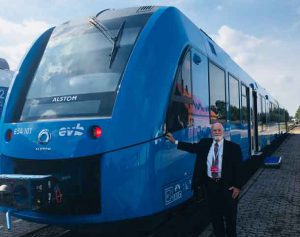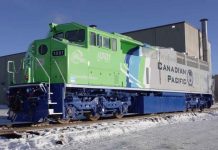
THUNDER BAY – Looming layoffs at Bombardier in Thunder Bay present all of our community leaders with a serious social and economic challenge. The loss of 550 solid manufacturing jobs, with the possibility of more job loses is a major blow to our economy.
While there is a combination of finger-pointing likely at the political level, the truth is there are a number of factors and a number of decisions over the years that have Thunder Bay at this point. None of that will save a single job at Bombardier.
First, Bombardier and the Toronto Transit Commission have a long history of working together. When the latest contracts were bid on, there was not a high enough Canadian content requirement. Then MPP Bill Mauro sought a high rate of Canadian Content but the then Liberal Government lowered that percentage significantly from what Mauro first sought.
That opened to door to work being done in Mexico, and skilled workers in Thunder Bay were left the task of fixing the problems, and that caused delays in delivering on the contract.
To a certain degree, one of the issues is also what seems common in Northwestern Ontario. When forestry was our major economic driver, producing newsprint, far too many ignored the electronic evolution going on across North America.
Our region stuck to the tried and true ways of the past, and the results were riding the newsprint train too long.
This was done with Bombardier as well to a degree.

In 2007, at a campaign stop in Thunder Bay, then Liberal Premier Dalton McGuinty declared that “Ontario would lead the world in the manufacture of hydrogen-powered rail”.
In the twelve years since that October promise, the only step toward joining the hydrogen rail revolution was the hosting of an international hydrail conference in Toronto.
Instead of pushing for Ontario and Thunder Bay to lead the world, there has been little substantive action on this opportunity for Ontario.
Imagine, if our city had the leadership and vision and been pushing hard, Thunder Bay could have been at the forefront of an exciting and new step forward in developing, designing, and manufacturing hydrogen rail locomotives.
Instead, there was perhaps too much comfort in relying on the tried and true paths.

photo credit: Detlef Matthiessen, Green Party Delegation Leader-Emeritus, Schleswig-Holstein Parliament (Landtag).
Since 2007 reporting on the developments in hydrail, there have been major steps forward in the United States, Europe, and Asia. Canada has not taken advantage of the opportunities that were there a dozen years ago.
Imagine the opportunities in that time which could be ongoing at Lakehead University and Confederation College. Researching hydrogen power and training the next generation of workers, skilled workers, in this growing green global evolution could have resulted in new opportunities.
Perhaps the real message for Thunder Bay is that it is key for our community and region to start looking for the future more.
That is where greatness in our community will be found.
We can revere our past, celebrate our past, but in order to thrive, we need to be planning for our future.
One hopes that perhaps there is still the impetus and drive in some of our leaders to start looking at joining the hydrail evolution.
There is still time! But only if we go boldly forward.
All Aboard?
James Murray
For the latest on all aspects of hydrogen-powered vehicles visit www.hydrogencarsnow.com




